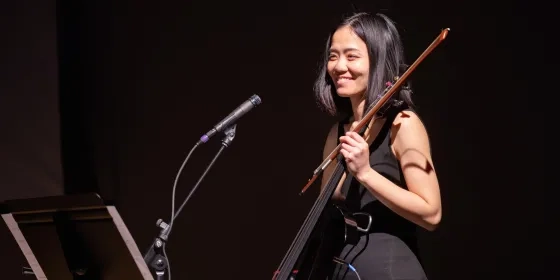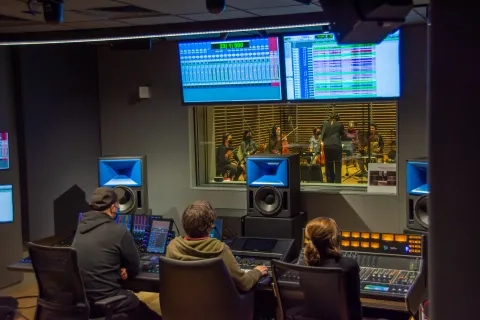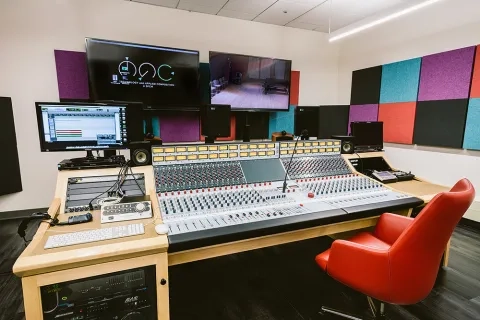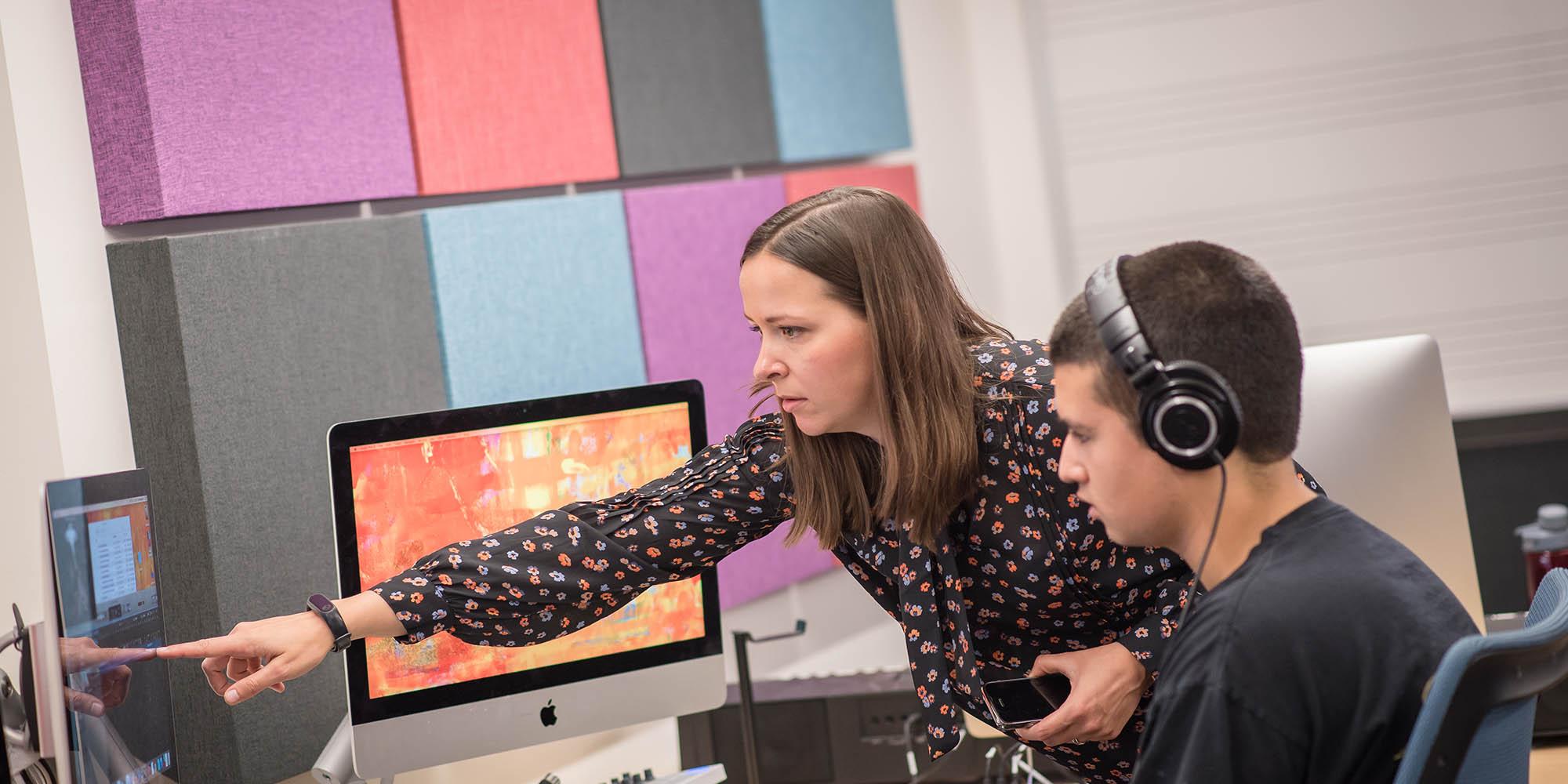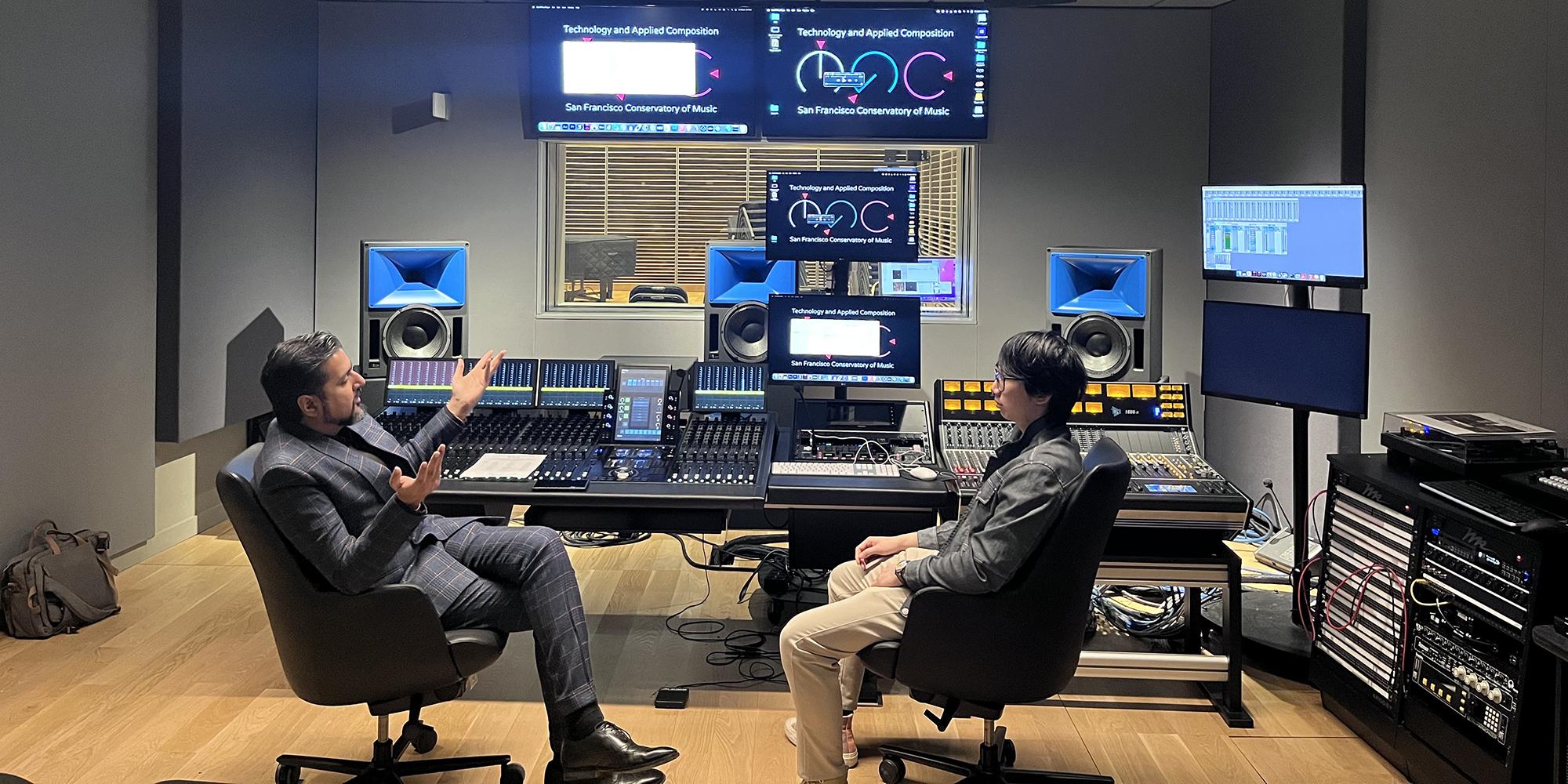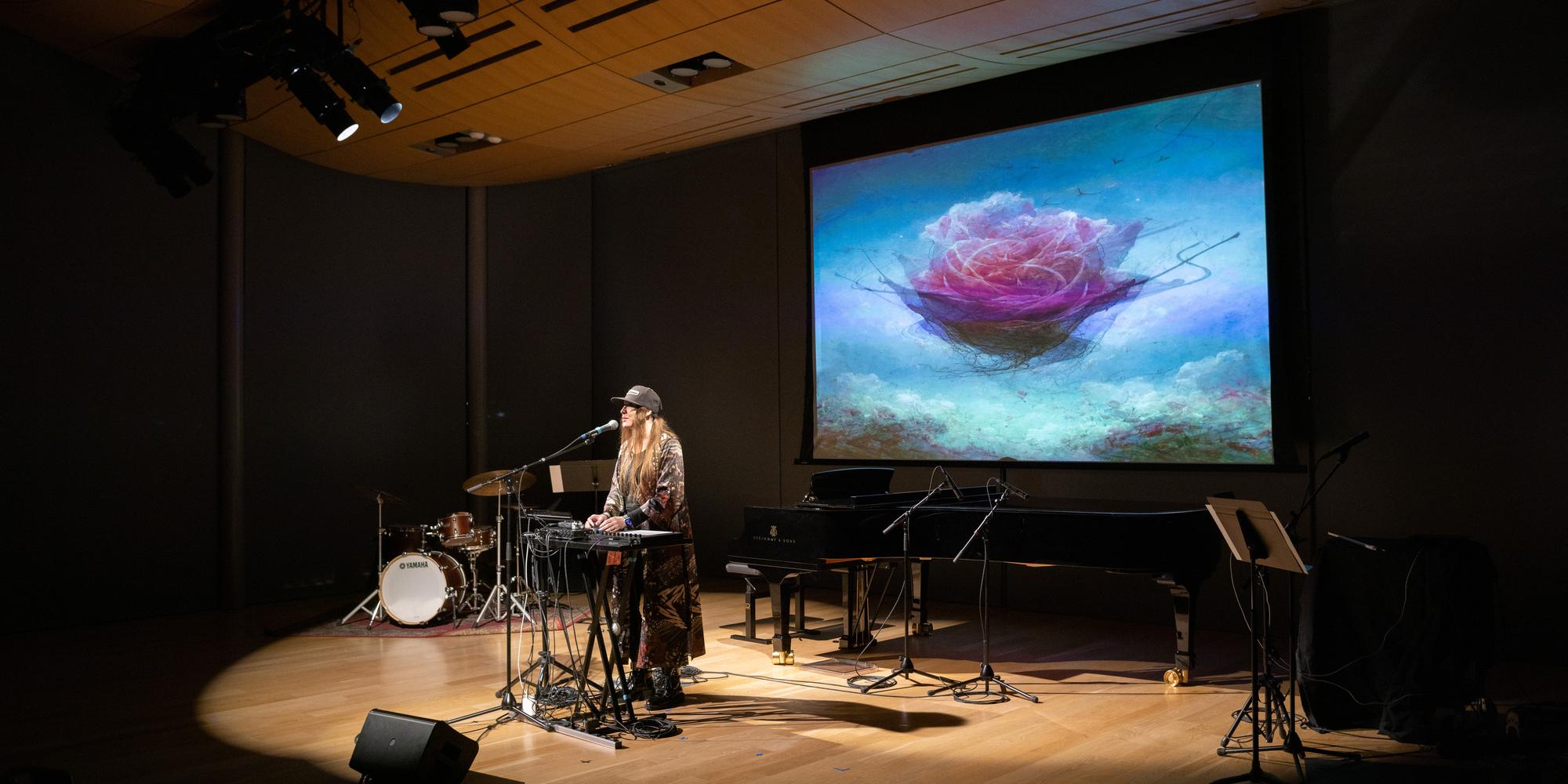SFCM’s Film, Game, Media Scoring Program Celebrates Major Milestone
The groundbreaking Technology and Applied Composition (TAC) program is celebrating its 100th graduate. Alumni include film and game scorers, television commercial composers, successful performing artists, and working media professionals at companies like Sony, Ubisoft, and Electronic Arts.
Writing the future of music is no easy task, but that’s what Roziht Edwards is ready to do.
Edwards is one of 24 Technology and Applied Composition (TAC) students in the 2023 graduating class, which will mark its 100th graduate at SFCM commencement May 19. “The TAC program is a place where you will learn how to build slow, solve fast, and play hard as a multitasking musician with a mind of precision,” Edwards said. “We make magic happen with sounds for anything imaginable!”
First introduced in 2014, TAC is a first-of-its-kind course of study that gives students a direct path into the worlds of film and game scoring, sound design, media composition and other rewarding musical avenues.
“The TAC program is very dear to me because there is no other program like it in the world,” said Executive Director Taurin Barrera. “The composer is also the recording engineer, the sound designer, and the programmer. We provide our students with a variety of areas in which they can pursue studies, so they are well prepared to take on any of the challenges that the music industry throws at them.”
Today the TAC program has one of the highest employment rates of any program at SFCM, with more than 90% of alumni employed full time in related fields. TAC graduates have composed music for Superbowl commercials, popular video games, and are employed by companies like Dropbox, Spitfire Audio, and Electronic Arts.
Recently, alumna Seira McCarthy '20, now a music designer at PlayStation, returned to SFCM to work with students as part of its recurring Sony Project, during which students compose individual scores for a fictional video game under the guidance of leaders from Sony Interactive Entertainment. “TAC really helped me solidify, understand, and expand my idea of what is possible with audio and music,” McCarthy said.
The intentionally small program is guided by teachers ready to lend a hand. “Our amazing facilities provide every student with access to top-of-the-line equipment and resources, which contributes to the popularity of TAC among young musicians,” said TAC Professor Daria Novoliantceva. The program also lets students choose what they want to focus on. “This means that each student can choose classes that align with their main interests and passions,” she added.
The program's facilities, held inside SFCM’s new Bowes Center, are known for their top-of-the-line technology (in 2021 members of the Recording Academy even visited SFCM to utilize sound and studio equipment to help judge the 64th annual GRAMMY Awards). Lab B is home to 21 workstations, each equipped with a dual-display Apple iMac, Nord Stage 3 hammer-action 88-key keyboard and Focusrite Red 4Pre audio interface, as well as state-of-the-art software, soft synths, and sample libraries.
“The facilities are nothing less than spectacular and I wish I had access to such facilities when I was younger. The studio is on par with the best professional studios worldwide and the staff is extremely knowledgeable, friendly, and has a great bond with the students,” said Ricky Kej, a composer and three-time GRAMMY Award winner who recently visited SFCM’s TAC program.
Students are also given opportunities to explore performing through collaboration with other programs at SFCM. Graduate Kat Night uses the professional moniker 009 Night when performing or creating new works. “These studios contain everything a person needs to be successful in a wide variety of awesome music and audio careers,” she said. “There is no limit to what a person can explore. The TAC program is for everyone. Whatever your interest in music and sound, this is the place to learn it.”
As for Roziht Edwards, after graduating, she plans to stay in San Francisco and grow as a composer, musician, and performer. “The love of exploring life as a musician is so present in this program, and this experience will for sure continue to influence my daily life as a human, and as an artist.” she said.
Learn more about studying Technology and Applied Composition at SFCM.
